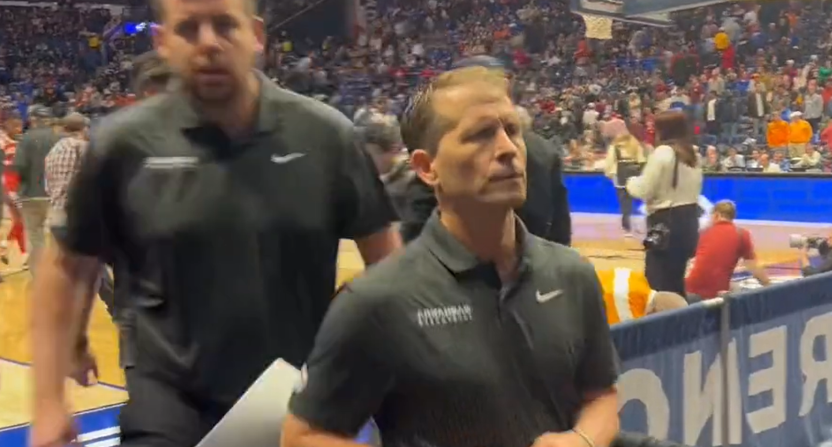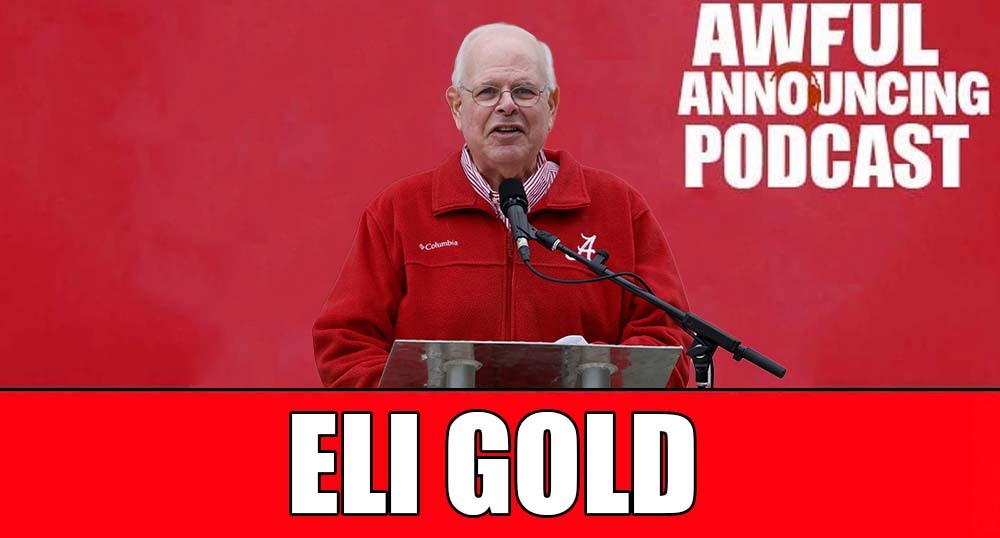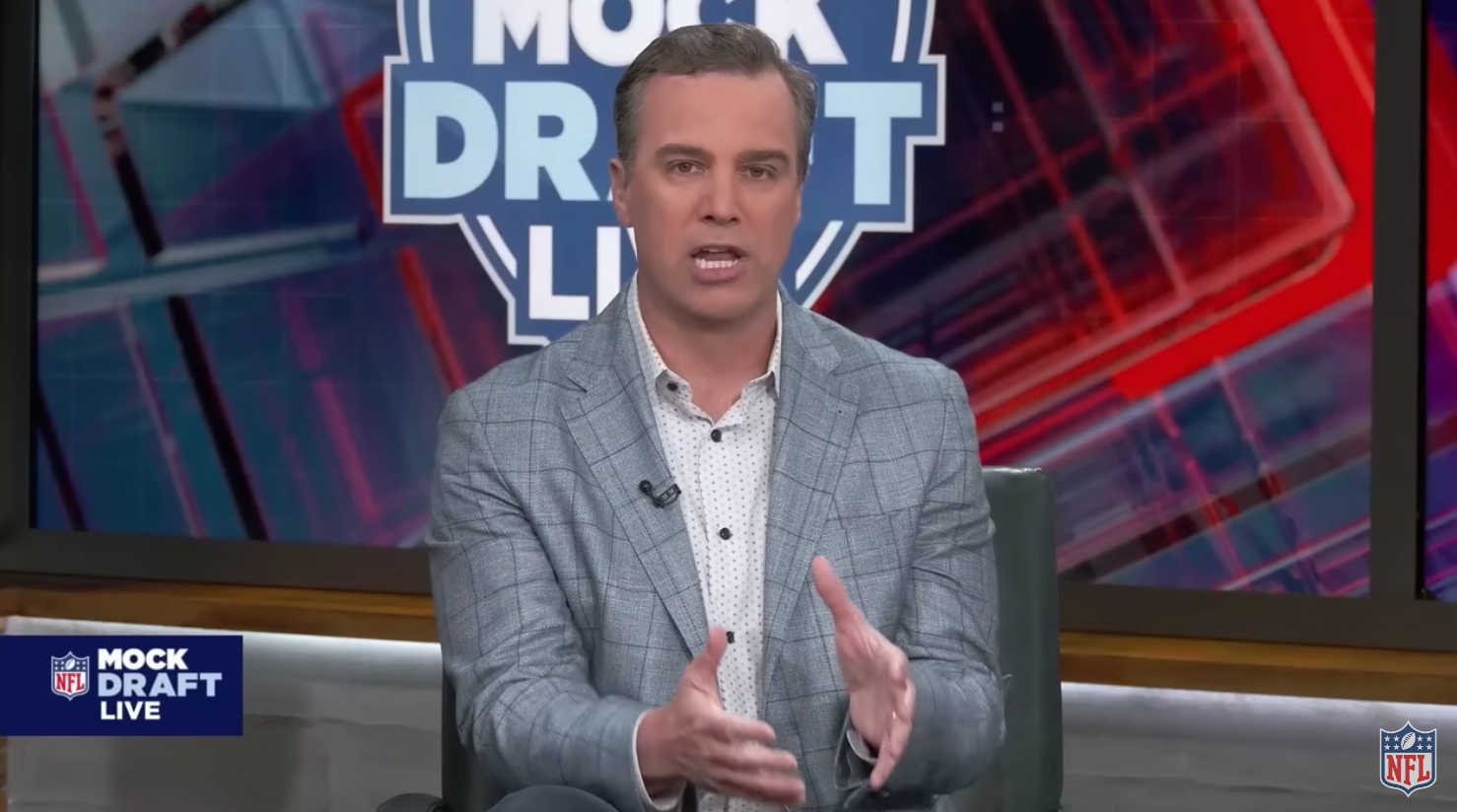On Friday, following the Arkansas men’s basketball team’s SEC Tournament loss to Texas A&M, Kentucky student journalist Jack Weaver was filming the coach’s exiting through the tunnel.
As Razorback head coach Eric Musselman approached, an Arkansas staffer can be seen confronting Weaver, reaching towards the phone before it’s sent spinning to the ground.
Arkansas head coach Eric Musselman left the court in a rage of f-bombs after losing to Texas A&M in the #SECMBB Tournament. His assistant then grabbed my phone and threw it at the ground. @KYKernelSports pic.twitter.com/xRiX7O7dAN
— Jack Weaver (@jack_weaver_) March 11, 2023
Weaver characterized the interaction as the phone being grabbed and thrown down by the staffer, later identified as Arkansas video coordinator Riley Hall. The situation was widely condemned on social media, which made the lack of an immediate response from the Arkansas administration all the more glaring.
On Saturday, the school finally issued a statement via AD Hunter Yurachek, attempting to both apologize AND suggest that actually it wasn’t that big of a deal and everyone should just calm down:
— Hunter Yurachek (@HunterYurachek) March 11, 2023
In full, the statement reads:
“I have visited with Riley Hall, a member of our men’s basketball support staff, and others who personally observed an interaction between Mr. Hall and a reporter following our game Friday night at the SEC Men’s Basketball Tournament. During our conversation, Mr. Hall expressed his regret that while leaving the floor his engagement inadvertently resulted in knocking the reporter’s cell phone from his hand. While, based on our discussion, I do not believe there was malicious intent, I have addressed the issue with Mr. Hall and he agrees his actions were not appropriate or reflective of our program. On behalf of Mr. Hall and our program, I want to offer an apology to the reporter impacted by these actions.”
This is a legendary example of how to craft a non-apology apology. It features a classic three-pronged approach, first by minimizing the actual incident in the face of video evidence. Phrases like “an interaction” and “his engagement inadvertently” are chef’s kiss-level deflections, somehow sincere corporate PR speak that could just as easily be satire straight out of an episode of Succession.
From there, Yurachek doubles down by playing judge and jury with the line about how he doesn’t believe there was malicious intent. Perhaps “Mr. Hall” was simply attempting to offer a congratulatory fist bump to Mr. Weaver, celebrating his shared interest in the protected freedoms of the press and the importance of the role of student journalism in the world of college athletics.
And then, finally, getting to the “apology” in the last line of the statement, which is par for the course but elevated here by referring to Weaver only as “the reporter impacted by these actions.” That’s after Hall got the “Mr. Hall” treatment on four occasions leading up to it.
Twitter, unsurprisingly, wasn’t buying it. My favorite reply:
https://twitter.com/ByJustinLee/status/1634662356721496067
Listen, every event is different from multiple perspectives. They made a whole movie about it. There’s certainly a world where, even with the video evidence at hand, the physical contact was slightly less egregious than the video itself makes it look. But the video looks bad! It looks like the staffer in question beelined for Weaver, a student journalist simply doing his job, and made physical contact with him without any justification whatsoever.
Given that set of facts, both observable and inferable, this statement is absolutely incredible in its shamelessness, impressive and laughable in equal measure.







